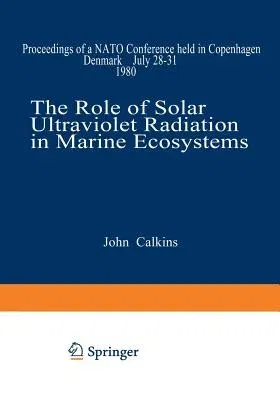The Role of Solar Ultraviolet Radiation in Marine Ecosystems (Softcover Reprint of the Original 1st 1982)Paperback - Softcover Reprint of the Original 1st 1982, 27 December 2012

Qty
1
Turbo
Ships in 2 - 3 days
In Stock
Free Delivery
Cash on Delivery
15 Days
Free Returns
Secure Checkout
Part of Series
NATO Conference Series (Closed) / IV Marine Sciences
Part of Series
NATO Conference
Part of Series
IV Marine Sciences
Part of Series
NATO Conference Series / IV Marine Sciences
Print Length
724 pages
Language
English
Publisher
Springer
Date Published
27 Dec 2012
ISBN-10
1468481355
ISBN-13
9781468481358
Description
Product Details
Book Edition:
Softcover Reprint of the Original 1st 1982
Book Format:
Paperback
Country of Origin:
NL
Date Published:
27 December 2012
Dimensions:
25.4 x
17.78 x
3.76 cm
ISBN-10:
1468481355
ISBN-13:
9781468481358
Language:
English
Location:
New York, NY
Pages:
724
Publisher:
Series:
Weight:
1265.52 gm

